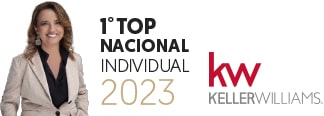Mortgage
The voluntary mortgage is a legal document, agreed between the lender (usually a bank or other credit entity) and the borrower (the beneficiary of the loan), which mentions one or more collateral, in order to ensure the lender 's payment. outstanding amount in the event of default by the debtor.
The guarantee can be the real estate itself, on which the loan is due, or any other belonging to the debtor or to third parties, provided that the respective value covers the amount owed.
In case of default, the creditor, the bank, can execute the mortgage and register the ownership of the property, if it is less than the amount owed, or the sale of it in order to be reimbursed for the amount still due, plus default interest.
Mortgage registration
A home mortgage must be registered with the Land Registry Office. If not, the mortgage is no longer valid.
Mortgage cancellation
The mortgage on a home can be canceled, and must be canceled after the end of the loan, and the mortgage must be canceled. This procedure will have to be registered once again at a Land Registry Office, requiring the delivery of a certified document stating the creditor's express consent.
When the reason for cancellation is the sale of the property, it must be made 15 days before the date of the deed of sale. If the cancellation occurs because the total loan amount has been paid, the owner will have to ask the bank to issue a document in which he waives the mortgage and declares the debt to be paid. This document is called mortgage termination. In this case, when the owner proceeds with the registration of the cancellation of the mortgage, at the Conservatório do Registo Predial, he must deliver the bank termination.
Mortgage costs
There are several associated costs: fees charged by the bank, costs with the notary / solicitor and registrations at the Conservatory. These costs are variable and not tabulated, except for acts performed by public entities.
Important Note: The information in this glossary is for informational purposes only. For proper advice on legal or tax matters, consultation with a duly authorized lawyer, notary, solicitor, or accountant is essential.
Your next step in the real estate market
Whether you want to sell your property for the maximum value or find the ideal home, count on my experience as a Top Producer consultant at KW Portugal. Talk to me without obligation. Start today with a simple contact.
Contact Me Today
Related articles





